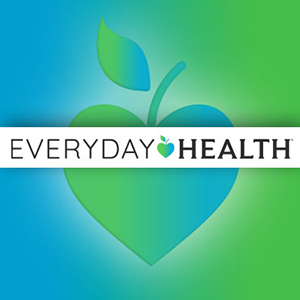Pickwickian syndrome, also known as obesity hypoventilation syndrome (OHS), is a breathing disorder that affects some people who have obesity. People with this condition can’t move enough air in and out of their lungs (hypoventilation), which leads to low oxygen and high carbon dioxide levels in the blood.e60dc2a1-f33c-4a05-9b50-8e3e8e5976295d0e1a7d-3bb4-4ab4-a175-5b38bcab6488
Overview Overview What Is Pickwickian Syndrome? The name of the condition comes from an 1836 Charles Dickens book, The Posthumous Papers of the Pickwick Club . In it, Dickens describes a character named Joe who has obesity and snores, falls asleep during the day, and breathes shallowly. The condition wasn’t named until 120 years later, when doctors recognized that these symptoms were part of a medical condition. Today, Pickwickian syndrome is better known as obesity hypoventilation syndrome (OHS).e60dc2a1-f33c-4a05-9b50-8e3e8e5976291ded6059-911f-4e21-bfeb-e660684e9c0d Most people with OHS also have sleep apnea , according to the National Heart, Lung, and Blood Institute (NHLBI).e60dc2a1-f33c-4a05-9b50-8e3e8e597629453fe12c-50dc-454f-a36e-0183e8fd9fbd In sleep apnea, breathing stops and restarts many times during the night. While OHS affects fewer than 1 percent of adults in the United States, it may affect up to 20 percent of people with obesity and obstructive sleep apnea, according to a study in the European Respiratory Review .e60dc2a1-f33c-4a05-9b50-8e3e8e597629f713dff0-4ca0-40a4-8a92-e966a6b960d5 Pickwickian syndrome is a very serious complication of obesity. It can be life-threatening, but it is manageable with treatment.
Symptoms Signs and Symptoms of Pickwickian Syndrome
People with OHS often have a body mass index (BMI) over 35, with symptoms like these:e60dc2a1-f33c-4a05-9b50-8e3e8e59762963f1ea14-6102-40ed-b94c-dd2fc00c3ff7 Shortness of breath Tiredness and a lack of energy Daytime sleepiness Headaches Dizziness They may also have symptoms of obstructive sleep apnea, such as:e60dc2a1-f33c-4a05-9b50-8e3e8e597629e3d70b98-4c91-4fa9-bcf4-d0990c9d750b Snoring Pauses in breathing, choking, and gasping during sleep Morning headaches Daytime tiredness Problems concentrating and remembering
Causes of Pickwickian Syndrome Causes Experts aren’t sure what causes OHS. They think it stems from a few different factors. One is a problem with the way the brain controls breathing. Another is extra fat in the neck, chest, and belly, which prevents the lungs from expanding enough to take full breaths. Another possibility is that fat cells produce hormones that affect breathing.e60dc2a1-f33c-4a05-9b50-8e3e8e5976296c567d4a-4468-4571-b603-85cb6b29ecd5
How Is Pickwickian Syndrome Diagnosed? Diagnosis Your doctor will first ask about your symptoms and whether you have trouble sleeping. They’ll also do a physical exam and calculate your BMI to determine whether you have obesity (defined as a BMI of 30 or higher).e60dc2a1-f33c-4a05-9b50-8e3e8e597629e6a4ff8c-9a70-4572-8f55-48852ea0f614 Tests used to diagnose OHS include: Arterial Blood Gas It measures levels of oxygen and carbon dioxide in a sample of blood. Pulse Oximetry A sensor placed on your finger measures the amount of oxygen in your blood. Pulmonary Function Tests This group of tests show how well your lungs are working. Chest X-Ray This imaging test can rule out other possible causes of breathing problems. Sleep Study (Polysomnography) This test helps doctors diagnose sleep apnea and determine how severe it is.
Treatment Options for Pickwickian Syndrome Treatment The main treatment for OHS is weight loss. Breathing assistance may also be necessary. Weight Loss Weight loss is an important part of treating Pickwickian syndrome. A loss of 25 to 30 percent of your body weight through diet and exercise can improve breathing and reduce the risk of complications like pulmonary hypertension , according to an article in StatPearls.e60dc2a1-f33c-4a05-9b50-8e3e8e59762901be5875-580f-4c31-b0e7-42fcb360e17e That might sound like a lot of weight, but your doctor, dietitian, and trainer or physical therapist can help you design a weight loss plan that fits your lifestyle. If diet and exercise don’t help enough or your symptoms get worse, bariatric surgery may accelerate weight loss. Because this surgery can cause side effects like low blood sugar, malnutrition, and bowel blockage, it’s important to have a thoughtful discussion with your doctor before you decide to move forward with the procedure.e60dc2a1-f33c-4a05-9b50-8e3e8e59762901be5875-580f-4c31-b0e7-42fcb360e17e Breathing Machine Treatment guidelines from the American Thoracic Society recommend positive airway pressure (PAP) to treat obstructive sleep apnea that occurs with OHS. You wear a special mask while you sleep to keep your airways open and increase your blood oxygen level.e60dc2a1-f33c-4a05-9b50-8e3e8e597629058e56af-fc18-4656-905f-7849bdcb6260 PAP comes in two types:e60dc2a1-f33c-4a05-9b50-8e3e8e59762901be5875-580f-4c31-b0e7-42fcb360e17e Continuous positive airway pressure (CPAP) delivers constant air pressure when you breathe in and out. Bilevel positive airway pressure (BiPAP) delivers a higher pressure of air when you breathe in than when you breathe out. This may be an option for people who can’t tolerate CPAP. Tracheostomy Rarely, people who don’t get enough improvement from PAP may need a tracheostomy. In this procedure, the surgeon cuts a hole through the neck into the trachea (windpipe) to deliver oxygen more efficiently into the lungs.e60dc2a1-f33c-4a05-9b50-8e3e8e5976294a7f9664-bd66-45b4-9dbf-2822c0370f83
Pickwickian Syndrome Prognosis Prognosis and Outlook Untreated OHS will progressively get worse. The lack of oxygen and sleep can lead to dangerous heart and blood vessel complications. This condition can increase the risk for hospitalizations and premature death.e60dc2a1-f33c-4a05-9b50-8e3e8e5976297aff8859-f7dc-40c3-9786-6dd3de325cbf Weight loss and PAP can improve your outlook. In one study of more than 200 people with OHS, the likelihood of dying within 5 years was 27 percent for people who didn’t follow their PAP treatment, but only 2 percent for those who did stay on treatment.e60dc2a1-f33c-4a05-9b50-8e3e8e59762984145f34-327d-48d2-b45f-4fa7dfa89260
Complications of Pickwickian Syndrome Complications Without treatment, OHS can lead to complications like high blood pressure , pulmonary hypertension, and right-sided heart failure . Weight loss and PAP can reduce the risk of these complications.e60dc2a1-f33c-4a05-9b50-8e3e8e59762900ce7e8a-a8e3-4aeb-bf59-80e20498f45b Other complications of OHS come from losing sleep, which can lead to:e60dc2a1-f33c-4a05-9b50-8e3e8e5976299c573486-c41a-41da-9005-64f3882270b4 Daytime sleepiness Irritability Depression Increased risk of accidents
The Takeaway Pickwickian syndrome, also known as obesity hypoventilation syndrome (OSH), is a breathing disorder that affects some people who have obesity. If you have been diagnosed with obesity and you’re having trouble breathing or you don’t sleep well, see your doctor for treatment. Weight loss and using PAP while you sleep can improve your breathing, help you sleep better, and prevent OHS complications.
Resources We Trust Cleveland Clinic: Obesity Hypoventilation SyndromeMayo Clinic: Sleep DisordersCenters for Disease Control and Prevention: About Sleep and Your Heart HealthNational Institute of Diabetes and Digestive and Kidney Diseases: Health Risks of Overweight & ObesityWorld Health Organization: Obesity: Health Consequences of Being Overweight
Read the full article here
Leave a comment




